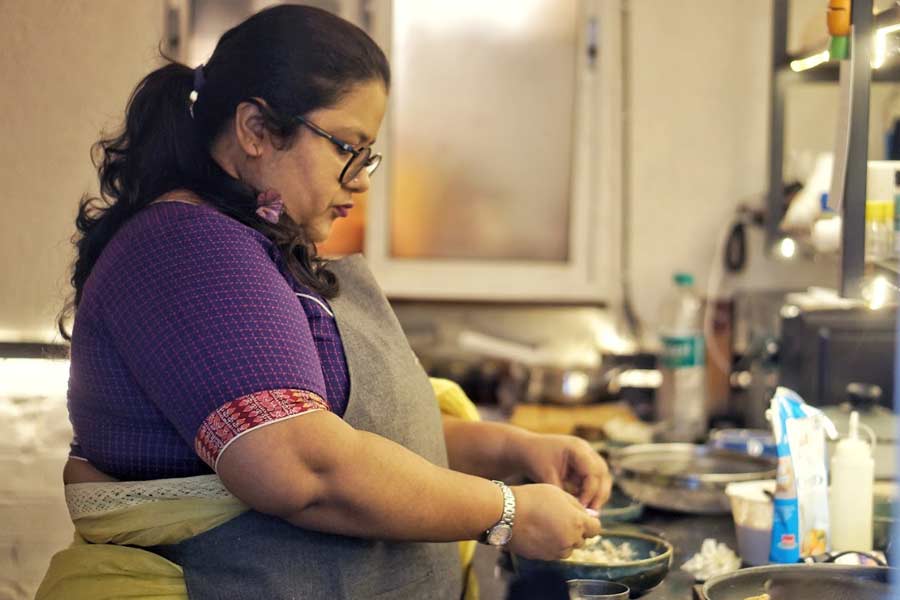Innovation in kitchen technology can be a recipe for disaster for women. A myriad appliances have been invented to make lives easier for women by saving them time and labour. In fact, several studies across the world show that the invention and the sale of appliances, such as the refrigerator and the microwave, have corresponded with a rise in women joining the workforce. India is not an outlier: a 2023 report by The Fuller Project revealed that in rural Rajasthan, where extreme heat makes it difficult to prepare food too long before consumption, refrigerators powered by solar energy allowed women to not just step out of their kitchens but also start their own dairy businesses.
Kitchen appliances may have helped women step out of the kitchen — momentarily — but they have not necessarily made life easier for them. The perception that kitchen appliances ease women’s work, for instance, has led to the invisibilisation of the extent of their domestic labour. An advertisement for Hawkins Futura shows us how: a mother tells her daughter, a working woman, to cook navratna korma as she will soon have to look after a family of her own. Far from flinching at the patriarchal assumption that ‘looking after a family’ involves learning how to cook, the woman only says that it has to be quick because she has a meeting. Out comes a shining pressure cooker and mother and daughter proceed to cook a delectable dish: what is not shown, though, is how much time they have spent on chopping vegetables and grinding spices before blithely throwing the ingredients into the pressure cooker or, for that matter, how long it would take to clean the valves and crannies of the cooker afterwards. Similarly, researchers from the University of New South Wales may have found that refrigerators allow women to go to office secure in the knowledge that the dinner they cooked will not spoil, but is it not still women who are waking up early and doing the cooking?
Many kitchen gadgets come with the underlying message that since women are being given so much help in the kitchen, they have no reason to complain — ad after ad for kitchen appliances have women smiling while tirelessly catering to the varied needs of each family member, a task that is both exhausting and thankless. An interesting study in the United States of America also revealed that the existence of kitchen contraptions makes men feel no obligation to help out in the kitchen. In homes with dishwashers, for instance, men who had previously helped with washing dishes did not even offer to load the contraptions.
Technology may have cooked up an artificially intelligent device that can chop, stir and saute by itself — AI cookers are in vogue — but urban women in India still spend at least 199 minutes a day in the kitchen and their rural counterparts, often without the luxury of such innovations, are in there for no less than 207 minutes. This is over and above other unpaid caregiving that is part of ‘looking after a family’. Worse, last year, a Gallup Poll highlighted that the ‘cooking gender gap’ is widening with time. Ironically, the gap is doubly detrimental for women stuck in their home kitchens — male chefs continue to dominate lucrative commercial kitchens while most men refuse to enter domestic kitchens. Even women who have the means to hire a cook are merely shifting the burden of labour onto other, more underprivileged, women who slog in not one but two kitchens — once at home and then again in their workplace.
While scientific innovation may have freed up a woman’s time, society sees this as an opportunity to burden her with more work that it deems productive, unlike cooking. A woman who can cook quickly with a pressure cooker and store the food for her family in the refrigerator is then free to go to office and contribute to the household financially because her unpaid domestic labour is chronically undervalued.











